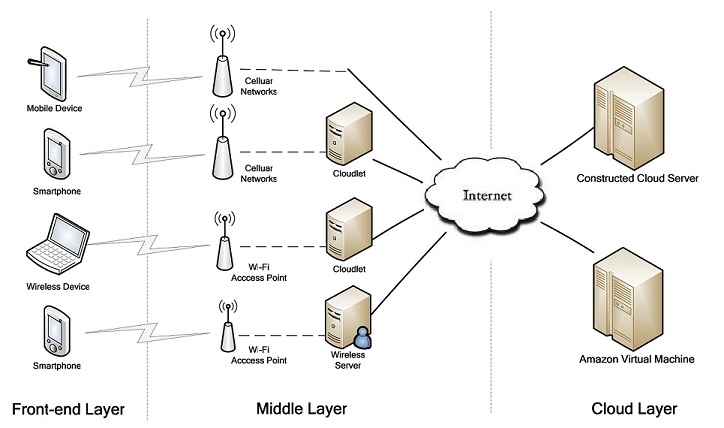


What is mobile cloud computing?
Mobile cloud computing is the combination of cloud computing and mobile networks to bring benefits for mobile users, network operators, as well as cloud computing providers.The goal of MCC is to enable execution of rich mobile applications on a plethora of mobile devices, with a rich user experience.MCC can be defined as "a rich mobile computing technology that leverages unified elastic resources of varied clouds and network technologies toward unrestricted functionality, storage, and mobility to serve a multitude of mobile devices anywhere, anytime through the channel of Ethernet or Internet regardless of heterogeneous environments and platforms based on the pay-as-you-use principle."
Challenges
In the MCC landscape, an amalgam of mobile computing,cloud computing, and communication networks (to augment smartphones) creates several complex challenges such as Mobile Computation Offloading, Seamless Connectivity,Long WAN Latency,Mobility Management,Context-Processing, Energy Constraint,Vendor/data Lock-in,Security and Privacy, Elasticity that hinder MCC success and adoption.
Architecture
MCC uses computational augmentation approaches by which resource-constraint mobile devices can utilize computational resources of varied cloud-based resources(Fig.1). In MCC, there are three layers, front-end layer, middle layer and cloud layer, including four types of cloud-based resources, namely distant immobile clouds , proximate immobile computing entities, proximate mobile computing entities, and hybrid (combination of the other three model).
